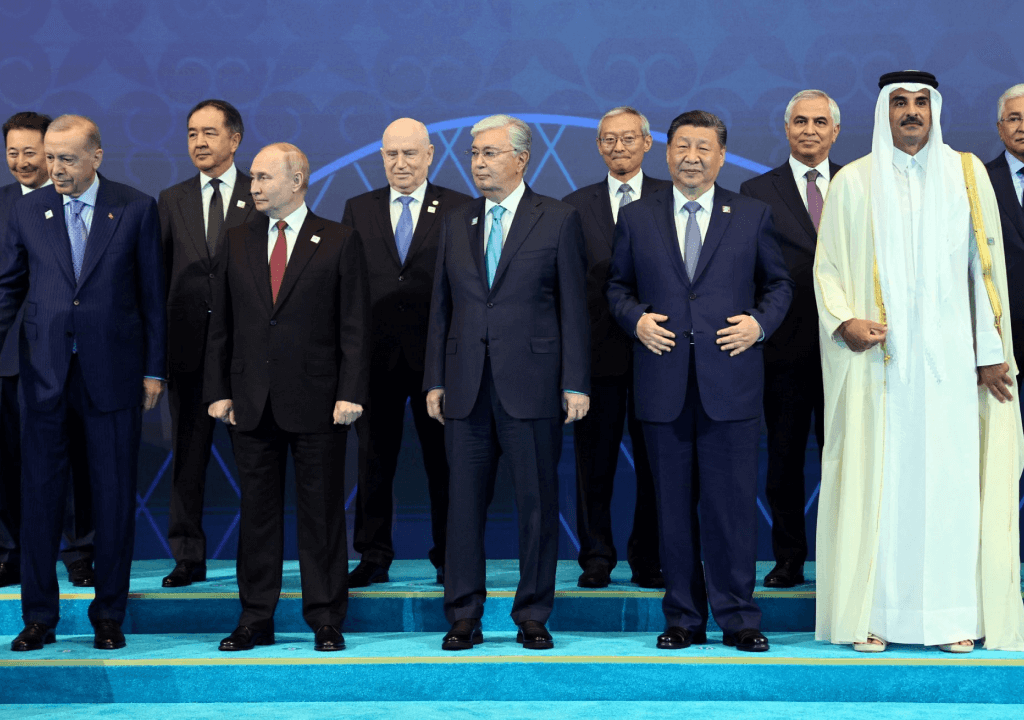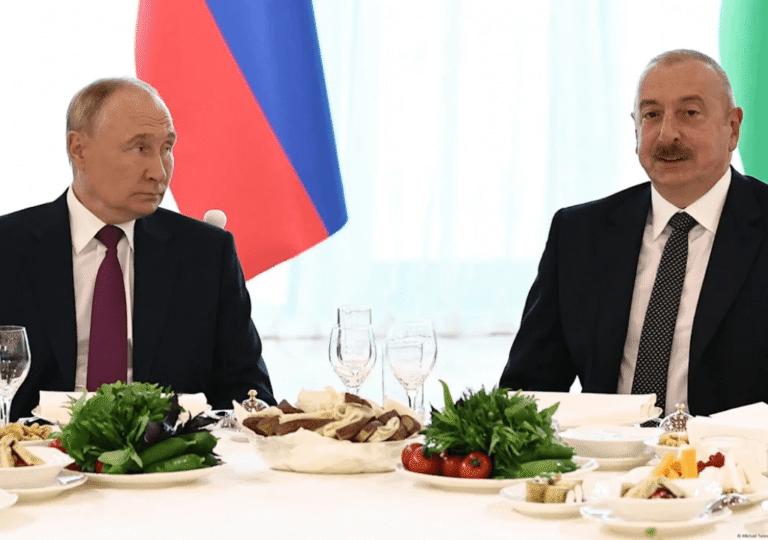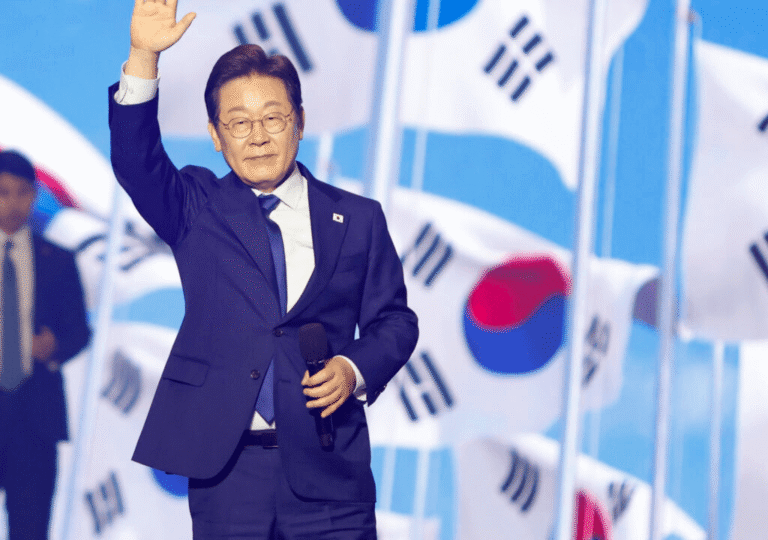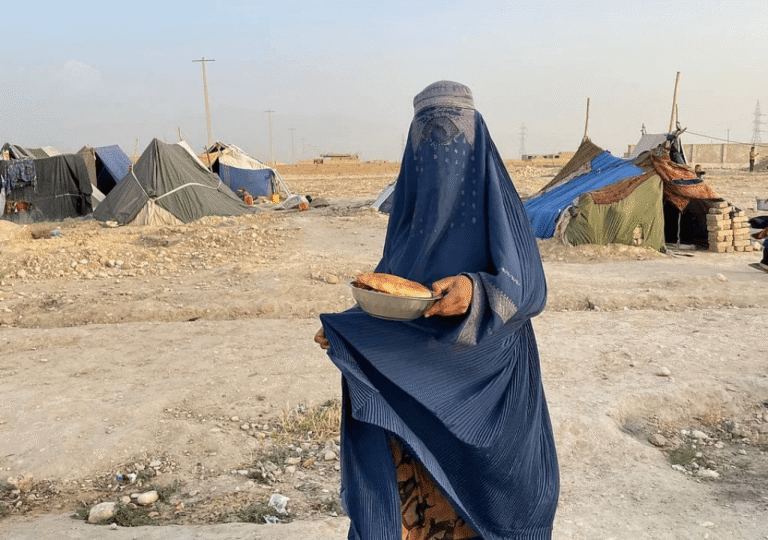Asia is undergoing accelerated bipolarization, with one pole represented by the United States and Japan, and the other shaped by Russia and China. Both teams are actively seeking to expand their influence. While the United States ramps up its efforts in the Asia-Pacific region, leaders from China, Russia, and countries in the global south are gathering in Kazakhstan for the annual meeting of the Shanghai Cooperation Organization (SCO), often referred to as the “Asian NATO”. This summit is widely seen as part of China’s efforts to establish a “Multilateral” world order that challenges US dominance while aligning with the authoritarian regimes of China and Russia. The forum will test the “strategic partnership” between China and Russia as they compete for influence in Central Asia, amidst efforts by other countries to reduce Russian and Chinese hegemony in the region. Questions persist about the SCO’s ability to maintain its relevance amid ongoing conflicts of interest among its member states.
The Shanghai Cooperation Organization (SCO), formed under the leadership of Russia and China in 2001, strives to promote cooperation in politics, economics, defense, and security among its member nations in the Eurasian region. SCO is recognized as the world’s largest regional organization by geographical area and population, encompassing approximately 80% of Eurasia’s land area and 40% of the global population. As of 2021, its combined GDP represented around 20% of the global GDP, featuring the second and fifth largest economies globally, making it a significant market and a resource-rich entity. Currently, there are 10 full members of the SCO, including Russia, China, Kazakhstan, Kyrgyzstan, Tajikistan, Uzbekistan, India, Pakistan, Iran, and Belarus. Additionally, there are numerous observer states, dialogue partners, and guest attendees, together encompassing a significant portion of Asia.
In its early years, between 2001 and 2008, the SCO thrived in what could be considered its golden age, experiencing rapid development and establishing permanent bodies and ad hoc initiatives focused on economic and security issues. During this period, many anticipated that the organization would grow akin to the EU or NATO, posing a significant challenge to United States interests and global dominance. The annual meetings of the Council of Heads of State, the SCO’s principal decision-making body, often garnered attention in global newspapers, depicting the organization as a burgeoning bloc. The SCO operated efficiently, akin to the operational models of the European Union or NATO. Based in Beijing, China, the SCO Secretariat acts as the organization’s central executive body. It oversees the implementation of organizational decisions, prepares documents like declarations and agendas, manages the organization’s records, coordinates activities within the SCO’s framework, and disseminates information about SCO activities.
However, after a challenging period began, the weaknesses in decision-making within the SCO became apparent, especially in choosing both India and Pakistan, longstanding adversaries, as full members. This decision highlighted the contradictions in decision-making between China and Russia. These divergent interests led some parties to use the forum as a platform to criticize others. Tensions between India and Pakistan, as well as between India and China, became evident. The consistent neglect of annual SCO meetings by the Indian Prime Minister, including the latest one, underscored India’s waning interest in the organization. Pakistan, unlike the previous Imran Khan government, attempted to realign with the West, which may challenge the organization’s stability. Central Asia, historically and geographically bound to Russia and China, is also exploring economic interests with the United States and its satellite countries like South Korea.
The 24th annual meeting is being held in Astana, the capital of Kazakhstan, starting from Tuesday. China’s President Xi Jinping arrived in Astana on Tuesday for the meeting and will also undertake state visits to Kazakhstan and Tajikistan. More announcements are expected from Xi aimed at maintaining China’s control over mineral-rich Central Asia and preventing Western access to these countries. Xi and his Russian counterpart, President Vladimir Putin, will convene for a crucial face-to-face meeting. However, a notable downside of the occasion is the absence of the Indian Prime Minister, while the Pakistani Prime Minister is in attendance.
As India cherishes its relationship with Russia and aims to strengthen it further, they avoid working against cooperation and aligning with the West. However, India does not agree with China’s increased decision-making influence within organizations and their mutual conflicts over other interests. China prefers Pakistan, and both have adversarial relations with India. Currently, Russia cannot afford to conflict with China’s interests, making the SCO a challenging environment for India. As a result, the dreams of NATO and the EU seem distant now, and SCO’s relevance may not necessarily increase. It is likely that it will remain another formal organization with regular meetings, potentially failing to address its foundational interests and principles.








